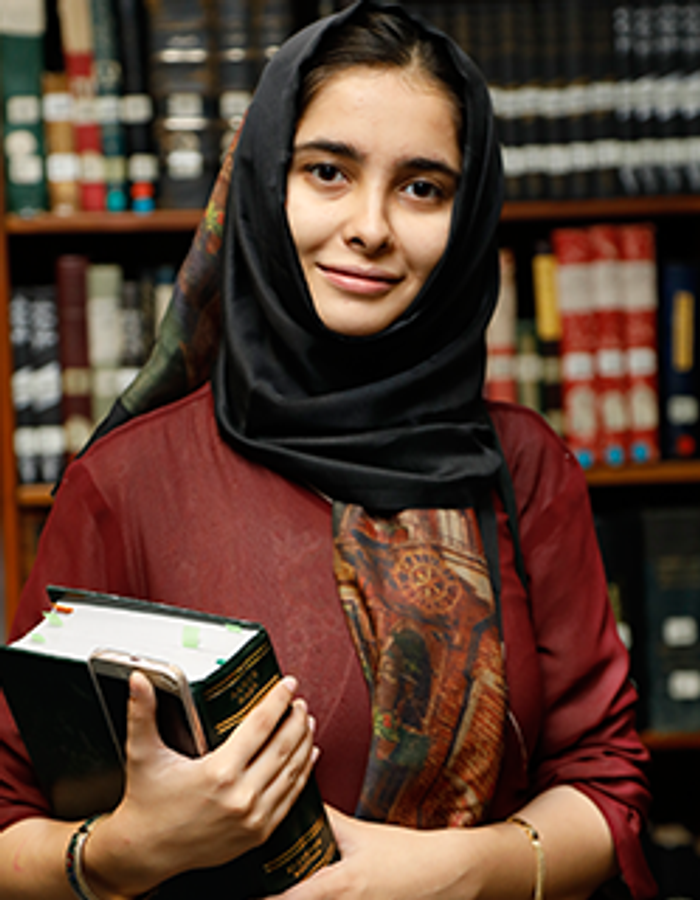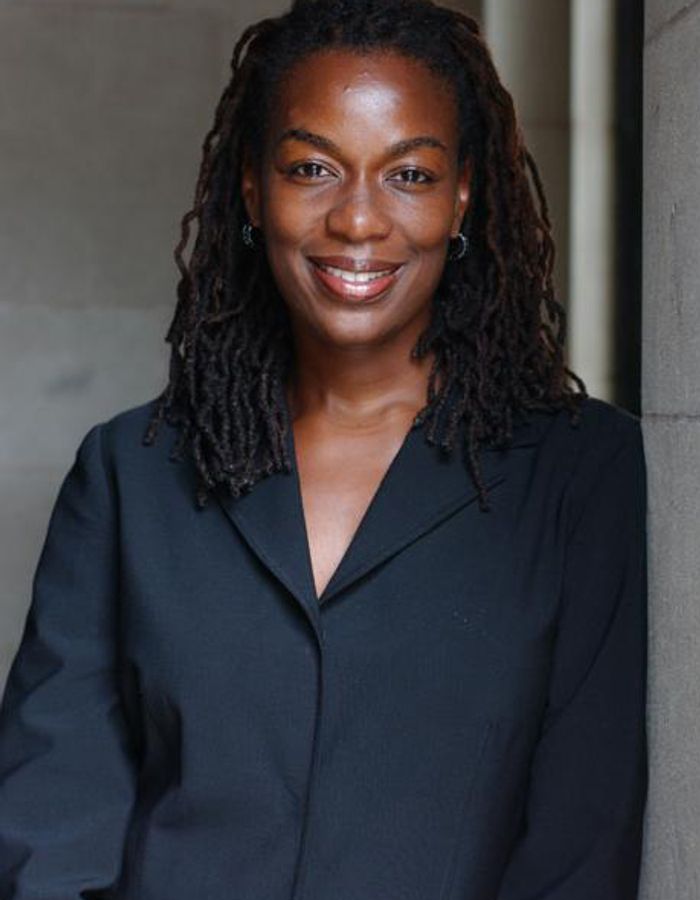Ethical Storytelling: rewriting the nonprofit narrative with communities at the centre
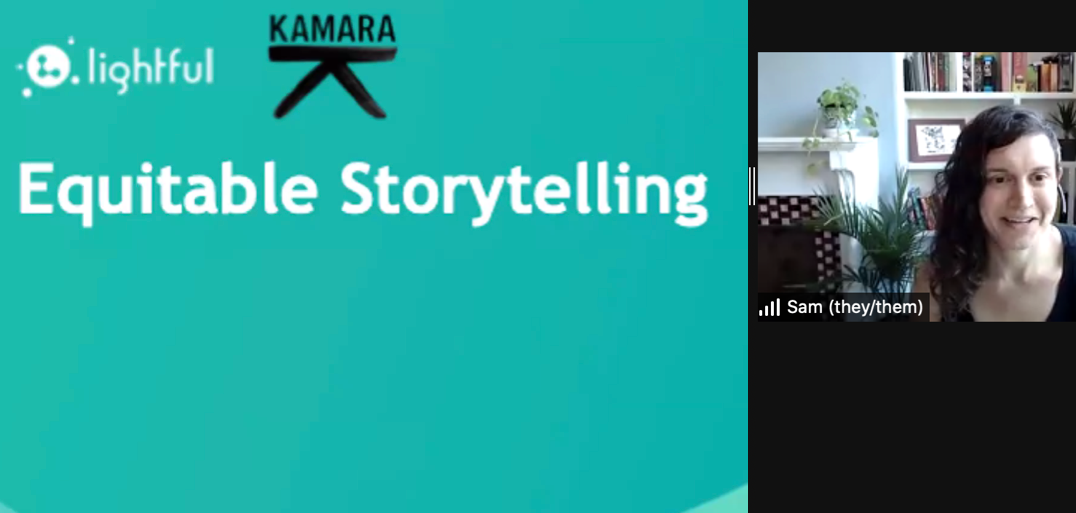
Nonprofits hold some of the world’s most powerful stories. Each individual, community, and environment that they protect and serve, has their own story to tell and it is this rich reserve of narratives that can inspire, motivate and move the wider public.
Stories are currency. It’s one thing to read about a social or environmental issue, it’s another to learn about an individual’s lived experience. It’s these stories that evoke emotion and encourage supporters to act, and most importantly donate.
Behind every story is a real person, who represents a real community. It’s important to remember that with storytelling comes responsibility. There is a fine line between empowering someone's voice and speaking over it, and as nonprofit professionals, we must be aware of this.
Ethical Storytelling
Ethical storytelling is a movement that seeks to integrate a new standard of storytelling across the nonprofit sector. It seeks to be authentic, respectful and place the constituent first, donor second.
Last week Sam Chenkin, nonprofit consultant at Kamara and founder of Reclaim the Sector, hosted a thought-provoking webinar on ‘Equitable Storytelling’ for Lightful BRIDGE participants - charities, nonprofits and foundations taking part in our Building Resilience in Digital Growth and Engagement programme. Sam spoke to participants about the dangers of extractive storytelling and shared tips on how to become a more responsible storyteller, one that puts communities at the centre.
What is extractive storytelling?
It’s the use of stories to benefit someone other than the constituent involved. To use Sam’s mining metaphor, it’s taking the value out of the story and making it a commodity.
“When we separate the stories from the true narrators, when we claim them as our own, using them for our own purposes… that is extractive storytelling,” - Sam.
There are various questions that Sam encourages storytellers to ask themselves before publishing a specific narrative:
- Who is the primary beneficiary of your story?
- How “true” is this story?
- What narrative does this story encourage?
- Is the story being used consensually?
- When are the goals of your NGO the same as the goals of your community?
Thinking about these questions when planning your digital communications and campaign stories allows you to protect the integrity of your organisation, but more importantly, protect the integrity of your service users. Your stories should show, not tell.
Storytelling is labour
Access to personal stories is a privilege, and storytelling is expertise. Organisations should consider compensating community members who allow their personal stories to be used publicly in online content and campaigns. If your organisation benefits from their story, they should benefit too.
You could:
- Consider paying community members to use their story
- Offer stipends for any participation that requires their labour (E.G. community feedback sessions, travel to meetings…)
Learning from BRIDGE participants
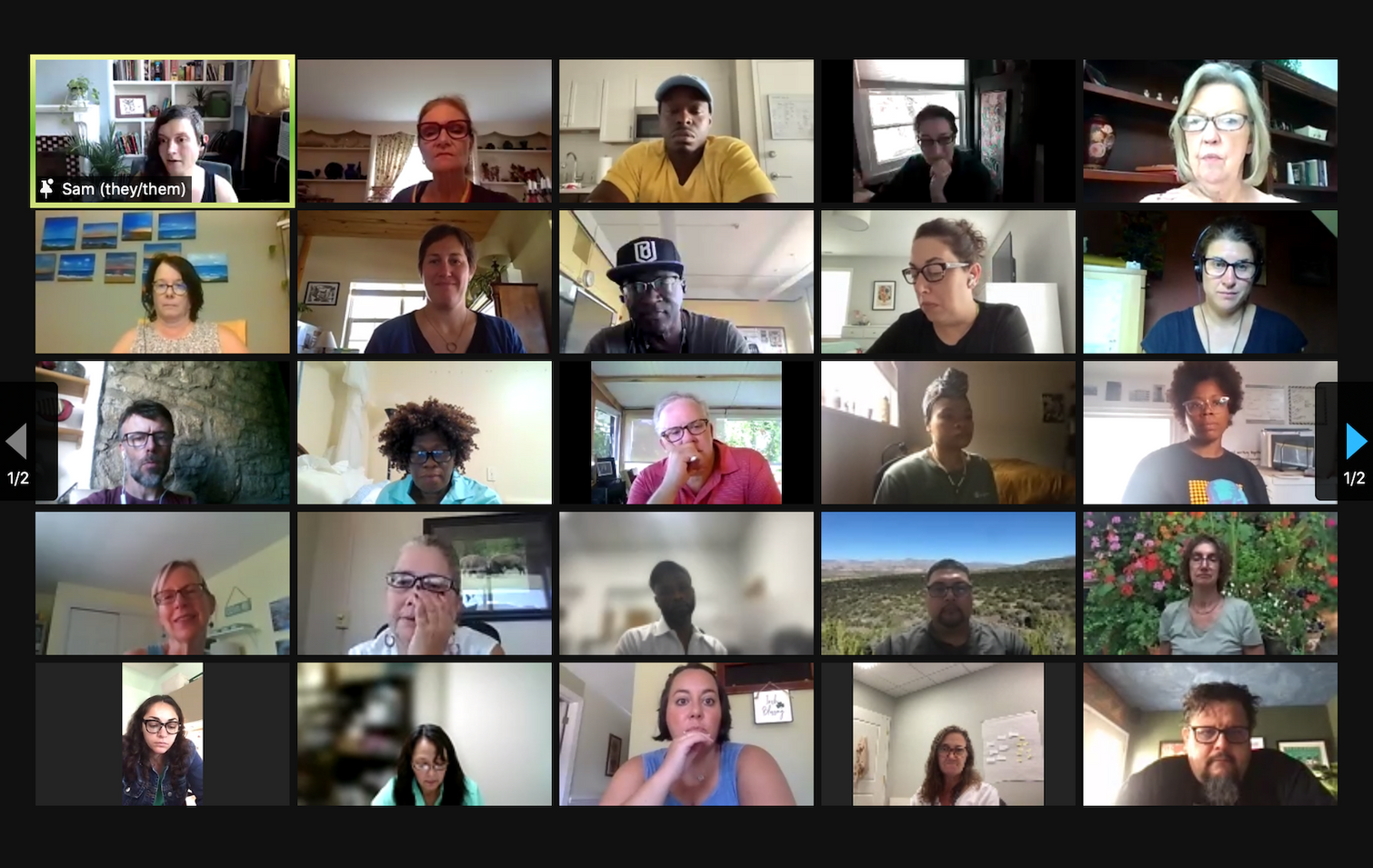
The idea that through digital confidence and resilience, organisations are empowered to amplify their work is at the core of Lightful’s BRIDGE programme. We believe that every organisation deserves the technology to represent their community, and lift up their community members voices. Here’s what some participants had to say during the session.
Why do we tell stories?
“To humanize the experiences of those that we represent” - Brandon Walthour, Florida Rights Restoration Coalition.
How can we ensure beneficiaries feel involved in the telling of their own stories?
“Keeping their voice authentic” - Liza Javier, Asian Counseling and Referral Service
“We try to emphasize agency and opportunity” - Grace Kraus, Horizons at the Ethel Walker School.
How can you compensate community members for sharing their stories?
“We learn their needs outside of what we’re already doing and we volunteer to help them, with resume writing, connecting them to jobs, providing free tutoring…” - Theresa Sullivan-Barger, Achieve Hartford
We’re so grateful to have partners such as Kamara, sharing their expertise and insights with Lightful and our BRIDGE participants. We are all navigating the social impact space and it’s only through shared learning and shared experiences that we can begin to flip the narrative and work towards more ethical storytelling and digital representation.
Latest articles
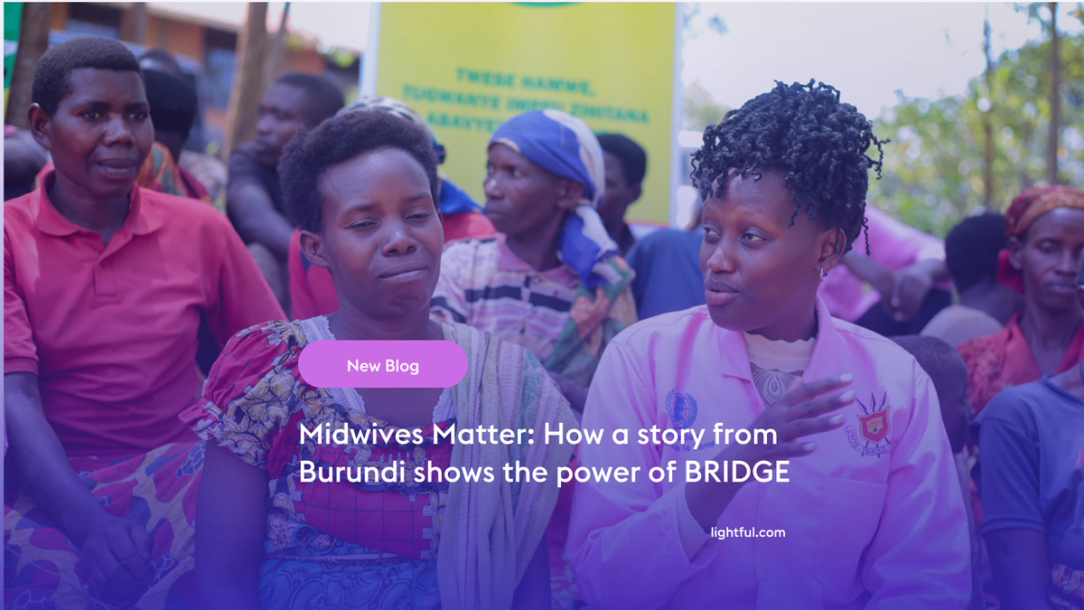
Over the past year, Lightful and the International Confederation of Midwives (ICM) have supported Midwives Associations across Africa, South Asia and the Eastern Mediterranean to build their digital confidence through our BRIDGE programme. These organisations were starting from very different places, but all shared the same goal: to use digital tools to strengthen their voice, raise their visibility and advocate for better outcomes for women and babies.
Related posts
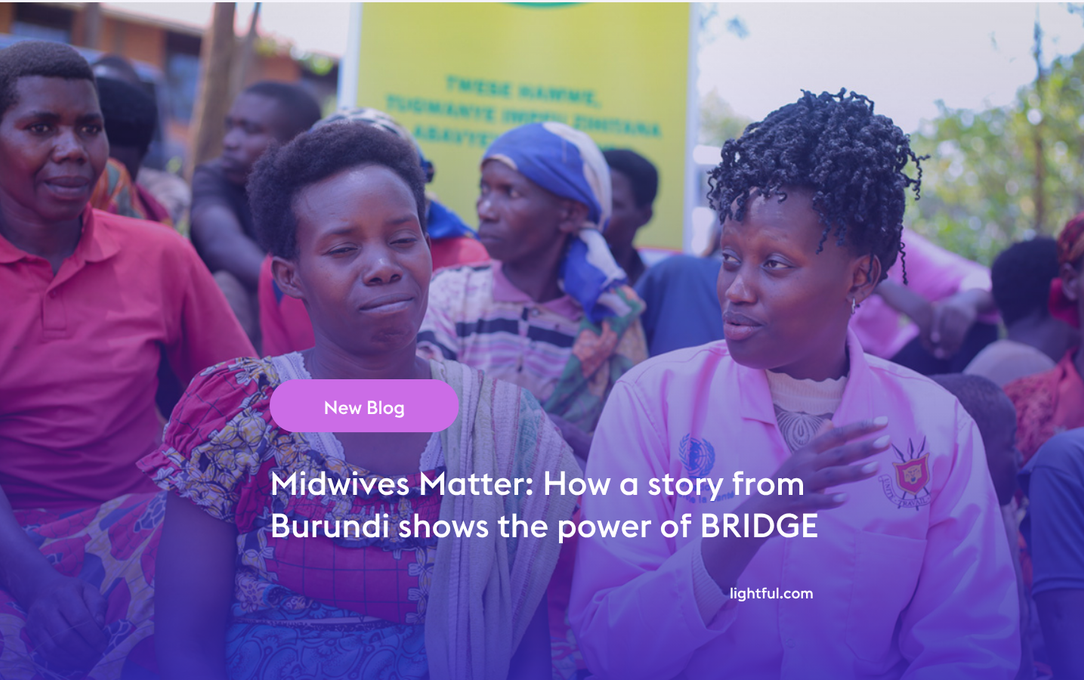
Over the past year, Lightful and the International Confederation of Midwives (ICM) have supported Midwives Associations across Africa, South Asia and the Eastern Mediterranean to build their digital confidence through our BRIDGE programme. These organisations were starting from very different places, but all shared the same goal: to use digital tools to strengthen their voice, raise their visibility and advocate for better outcomes for women and babies.
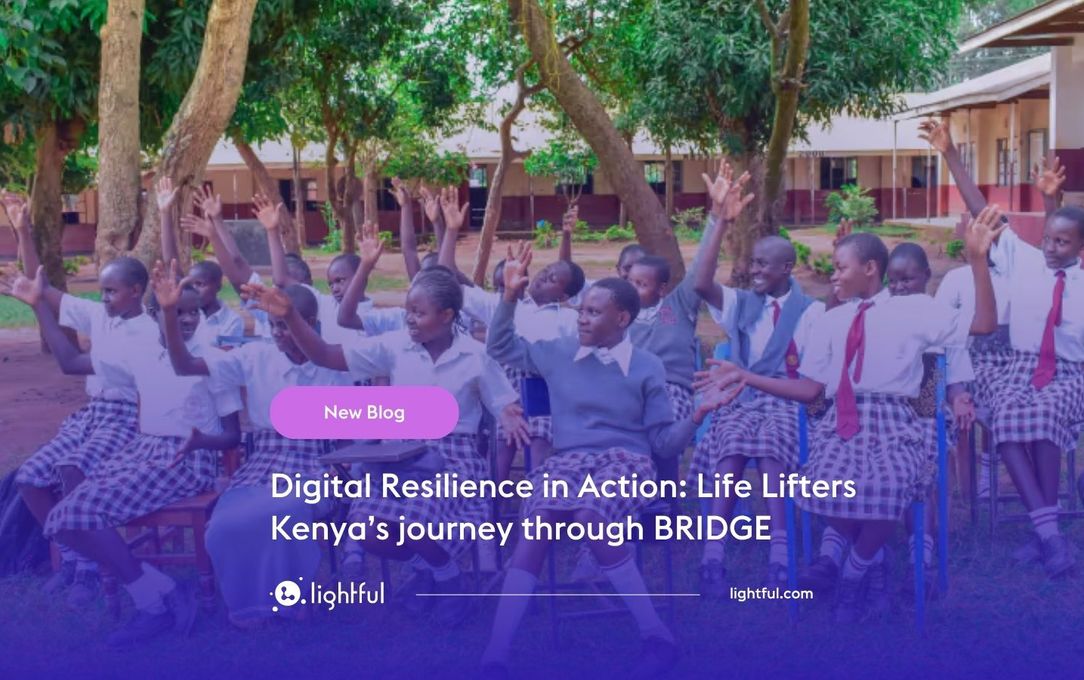
In today’s rapidly evolving digital landscape, the ability to engage online is a necessity. For nonprofits, especially those working in underserved regions or tackling complex social issues, digital tools can be the bridge between intention and impact. Whether it’s reaching new donors, advocating for policy change, or delivering services, digital capacity enables organisations to scale their mission and deepen their impact. Yet many grassroots organisations remain digitally under-resourced. That’s why Lightful created the BRIDGE programme - Building Resilience in Digital Growth and Engagement - to empower nonprofits with the skills, confidence, and strategies to thrive in the digital age and build lasting change.
See who we help
Contact us
Want to learn more?
Email Jonathan and start a conversation





